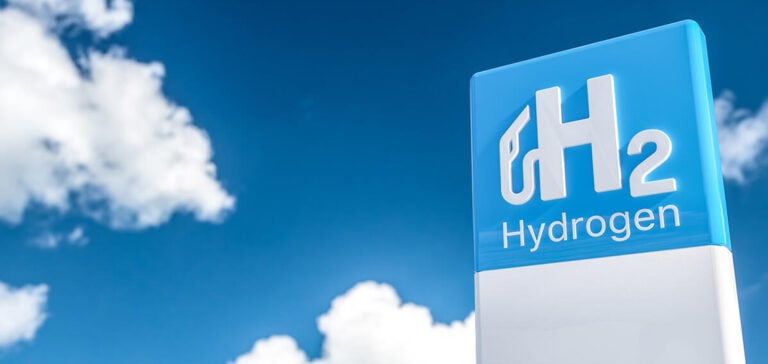The potential of geological hydrogen as a clean, inexhaustible energy resource is capturing the world’s attention. However, despite this wave of enthusiasm, major challenges remain before this resource can be fully exploited. Geological hydrogen, long neglected, is now attracting increasing attention, opening up new prospects for our energy future.
A long-neglected resource
Research geologist Geoffrey Ellis, of the U.S. Geological Survey, points out that geological hydrogen is now at the heart of the energy industry’s concerns. Companies are increasingly turning to this resource in search of new opportunities. Indeed,hydrogen has become a potential source of revenue, in response to growing market demand.
Steadily rising demand
According to S&P Global data, global gas demand is set to grow significantly over the coming decades. From 97 million tonnes a year today, this demand is set to rise to 119 million tonnes a year in 2030, and 265 million tonnes a year in 2050. Faced with this growing demand, low-carbon hydrogen should gradually replace fossil fuel-based hydrogen production, which will decline from 2037 onwards.
But how is geological hydrogen different? According to Geoffrey Ellis’ estimates, there is an impressive range of potential production, from thousands of megatons to billions of megatons. This considerable quantity, although partially inaccessible, could play a major role in meeting future demand.
This clean, economical fuel would pave the way for greater penetration of hydrogen in the industrial, transport and power generation markets, reducing emissions without adding to costs. In addition, government policies such as the Inflation Reduction Act in the United States provide substantial subsidies for low-carbon hydrogen production projects, encouraging the development of this promising technology.
The challenges of low-carbon hydrogen adoption
Geological hydrogen has an exceptionally low carbon intensity, estimated at 0.37 kg CO2 equivalent per kilogram of hydrogen. This figure, which takes into account well casing and hydrogen emissions, is well below the Inflation Reduction Act limit of 0.45 kg CO2 equivalent/kg hydrogen. As a result, geological hydrogen could benefit from substantial tax credits, making it even more attractive to exploration companies.
Paul Harraka, Managing Director of Koloma, a pioneering company in the field of geological hydrogen, points out that the PTC hydrogen legislation reflects the importance of producing clean, economical hydrogen. It encourages technologies such as geological hydrogen, which have the lowest carbon emissions.
Financial and technical challenges
Exploiting this renewable resource is part of the world’s crucial decarbonization objectives. But the key question lies in overcoming the financial and technical challenges associated with geological hydrogen exploration.
Unlike traditional financing models, geological hydrogen, as an emerging technology, requires a different approach. Projects require a supply purchase agreement to guarantee economic viability, in the absence of known production volumes and future sales.
Companies like Koloma have won the backing of major venture capital funds, testifying to the growing interest in this technology. However, funding for geological hydrogen remains relatively limited compared with massive investment in other forms of hydrogen, such as blue and green hydrogen.
Geological hydrogen, while a disruptive technology in terms of pricing, cannot by itself replace fossil fuels on a global scale. It has its place as a complementary source to the other forms of hydrogen currently under development, each with its own best applications.
One of the main obstacles to the widespread adoption of low-carbon hydrogen is the cost differential with conventional hydrogen. However, the results of exploration wells and advances in research could help fill this gap.
The future of energy at stake
As companies prepare to explore geological hydrogen wells, the giants of the oil and gas industry are keeping a close eye on developments in the sector.
Geological hydrogen represents the hope of creating an inexhaustible source of energy, providing electricity, fuel and raw materials on a continuous basis, meeting the energy needs of our changing world. Progress in the exploration of this resource will pave the way for the establishment of a long-term hydrogen infrastructure base, helping to shape our energy future.
The question is not whether geological hydrogen exists underground, but how to locate it and develop the tools needed to exploit it.






















